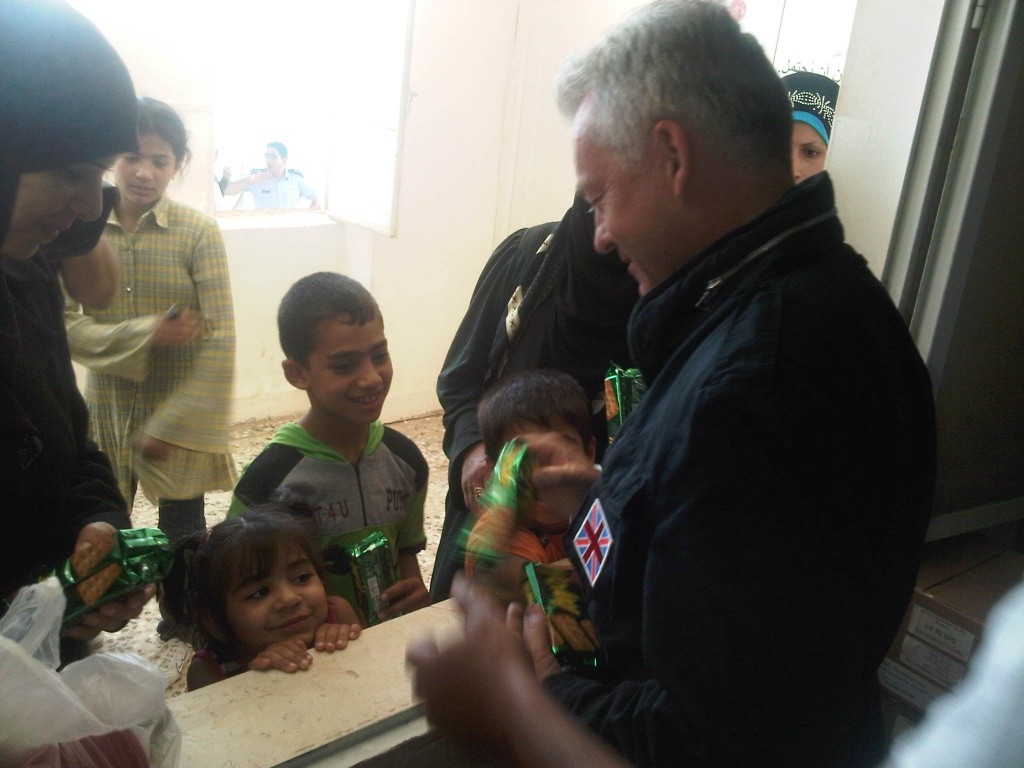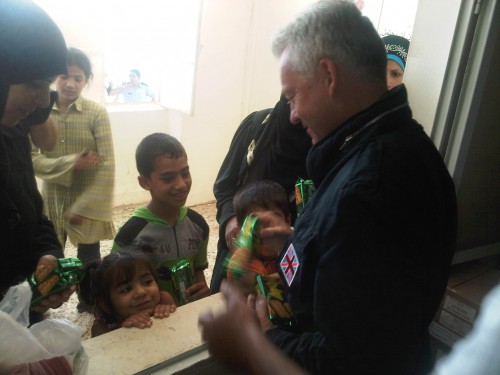14th June 2012
Up Close and Personal

The man was clearly traumatised after crossing the border from Syria. His eyes wide, he told us that he had seen his sister and her seven children murdered by regime thugs. Another man told us with tears about the way he and his family were stopped at a check point and the Syrian army took his daughter away and raped her.
These people have been through hell to get to Jordan. They have trekked for days and risked their lives to escape the violence. And they want to tell their stories, however unspeakable and personal the details may be. They want to be sure that the world knows about the grotesque acts the Assad regime is inflicting on its own people.
We were at Ramtha, on the Jordanian border with Syria where a daily flow of refugees is being taken in and looked after by the Jordanian authorities. I was with Alan Duncan, the British Minister responsible for international development and humanitarian assistance in the Middle East. He spoke to families who recounted in dramatic detail the devastating attacks being inflicted daily on Syrian towns and villages.

The Beshabsha camp has seen many thousands of Syrians arrive from Syria. They are given medical help, sometimes for injuries caused by heavy weapons. These are some of the 87,000 Syrians who have fled Syria, while another 500,000 have been forced to move to other parts of Syria. As many as 15,000 people have been killed and each day brings more stories of savagery.
The most recent massacres at Houlah and Qubair have revealed the horrific methods and the human rights violations committed by the regime. The Syrian military bombard the town with artillery and then unleash militia groups to terrorise and murder civilians in their homes. In Houlah 108 were slaughtered, including 49 children. The death toll in Qubair was 78.
The reasons for fleeing this inhumanity are clear. And the need to help these refugees is urgent. Moreover, the generosity of the Jordanians is remarkable. Most of the refugees who have crossed have been taken in by Jordanian families, either relatives or friends. The economic burden on the country is considerable. But the Jordanian spirit of hospitality for guests – and especially for guests in need – shines through.
Minister Duncan was also looking at the way the £8.5 million aid we have given for Syrian refugees is being used to get help rapidly to those who need it. The UN High Commission for Refugees plays a major role and works closely with international NGOs to provide medical help, food and shelter. Britain has helped to provide emergency food supplies for nearly 24,000 families inside Syria, safe drinking water for 30,000, blankets for 5,000 and medical assistance for up to 25,000 people in neighbouring countries.
This humanitarian work takes place alongside the international effort to end the violence in Syria and start a political process to meet the aspirations of the Syrian people. The regime is isolated and under pressure. The brave Syrians who are calling for justice will not be silenced. The Annan Plan is the internationally backed political campaign to achieve that transition. But the regime is not fulfilling its side of the plan and has failed to implement the ceasefire. So the Annan Plan cannot be open-ended. The international community will have to carry on exploring the options to put more pressure on Assad.
Back at Ramtha, we listened to the children tell their stories, reciting poems and talking about their homes. I thought about the stories that had emerged that day of the Syrian army using children as human shields on tanks. These were the lucky ones. We can only hope and pray that an end to this nightmare will come for all the other children in Syria.
It is good to know that Britain has given money to aid these refugees in Jordan. One admires so much the way that a small country like Jordan opens its doors to refugees. Would that we all did the same. Keep on telling the world.
what are all the muslim doing for their fellow muslims most of them are rich with the oil they produce so let them dig deeper in to their own banks
and help their fellow brothers we should take a step back before we get draged into another war we are not ready for another war this government
has raped the armed forces
jimh
watp